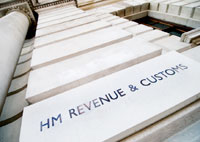Victory for taxpayer in Inheritance Tax case

Farmers and estate owners who have diversified will be encouraged by the outcome of an important Inheritance Tax case published recently.
On 17 August HM Revenue & Customs published its findings in the appeal by HMRC against Mr Brander as executor for the late Lord Balfour. HMRC’s appeal, on a point of law only, was refused, confirming an earlier decision that valuable 100% Inheritance Tax Business Property Relief should be available on land, houses and cottages let to third parties as well as the taxpayer’s property used in their trading activities.
For BPR to be available there has to be a business activity which is predominantly a trade. Thus, the owner of an in-hand farm would expect to receive 100% relief from IHT on the land and other properties associated with that activity. In contrast, an estate owner who only lets his properties would not be granted any BPR, although they may be eligible for Agricultural Property Relief on appropriately let farmland and ancillary property.
However, many situations will be a combination of in-hand activities and lettings many of which will have, historically, been properties occupied for the purposes of farming operations.
The Balfour Case concerned the activities on the 1900-acre Whittingehame Estate, East Lothian, which consisted of two in-hand farms, three let farms, woodlands, sporting rights, two sets of let commercial buildings and 26 let houses and cottages.
The case also involved a complex set of ownership factors, with Lord Balfour being a liferenter (the Scottish equivalent to a life interest) until November 2002 and then the freeholder until his death in June 2003. The business activity throughout the relevant period was conducted either by Lord Balfour as a sole trader or by a partnership of which he was a member. It should also be noted that as Lord Balfour’s health deteriorated his external land agents took on the day-to-day administrative matters, but importantly continued to report directly to Lord Balfour.
Central to the decision at the First Tier Tribunal was Lord Balfour’s involvement, despite the ownership in the earlier years; he managed all the activities for the benefit of the estate as a whole. Other important factors were that the cottages were historically part of the estate’s farming operations and predominance of the trading activities of farming, shooting and forestry over the letting activities, which were considered to be ancillary.
On the basis of this case, and Farmer v Inland Revenue Commissioners which was heard over 10 years ago, BPR should be available if property letting is not the main activity and it is part of a single business. The decision in this case will be comforting news to owners of traditional landed estates who carry on a range of business activities, and those farmers who have diversified away from pure agricultural operations on their property, both of whom can expect to qualify for business relief if their circumstances are similar to those in the Balfour case.
Mike Harrison is a partner at Saffery Champness
